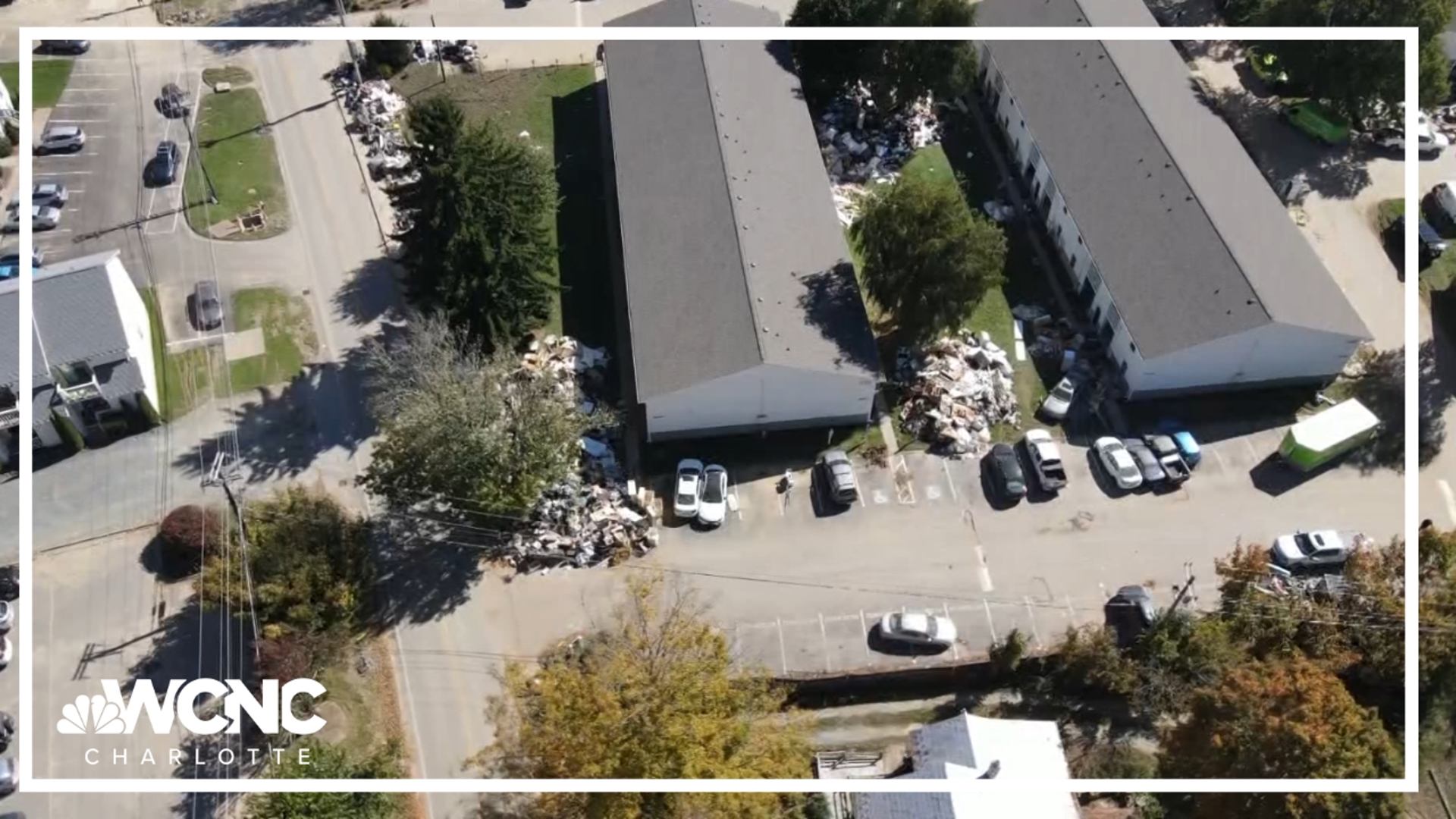CHARLOTTE, N.C. — Cleanup efforts are underway in both North Carolina and South Carolina in the wake of Helene, which hit the Florida coast as a Category 4 hurricane late on Sept. 27 before tearing through the Sunshine State, up through Georgia and into the Carolinas.
North Carolina Commissioner of Insurance Mike Causey is reminding residents about what to do as cleanup efforts continue after the storm.
- Contact homeowners' insurance company to report any losses.
- Make a list of damages and take photos before making any repairs.
- Do what you can to stop further damage.
- Do not make permanent repairs until your insurance company has inspected any damage and costs have been agreed to.
NC Emergency Management recommends that debris should be placed curbside and not block any roads or access to the property. Debris should be placed away from trees, poles or other structures to make removal work easier.
Officials note that debris should be separated into six categories:
- large appliances
- construction debris
- vegetative debris
- hazardous waste
- electronics
- household waste.
If chemicals, propane tanks or other hazardous materials are found on your property, call your local fire department to inspect and remove those items.
If you get your drinking water from a private well and your area has been impacted by flooding, make sure it is safe before drinking. State-approved water testing labs can be found through the NC Department of Environmental Quality.
Officials warn caution of anyone offering debris removal or water testing services. Scammers often use disasters as an opportunity to take victims' money.
The NC Department of Public Safety encourages people to check with the Better Business Bureau to see if the company has any complaints against it. Also, make sure that companies are licensed and insured.
Here are some tips to avoid becoming a victim of a scam:
Emotional appeal - Any pitch that ratchets up your emotion will inhibit your rational judgment.
Sense of urgency - You MUST act now, or else.
Request for unorthodox payment - Gift cards, prepaid credit cards, wire transfers, etc.
Explanations that don't ring true - If your new “landlord” can’t show you the inside of the house, that could be because they don’t own it.
You won, now pay up - It’s not a prize if you have to pay for it. Taxes, fees, shipping, whatever.
Too good to be true - That’s because it’s not true. Sorry, your long-lost relative didn’t die, leaving you millions. That car you bought online for a third of its Kelly Blue Book value doesn’t really exist. The son of a billionaire diamond broker didn’t “swipe right” on you and fall instantly in love. That work-at-home job paying you hundreds of dollars an hour for stuffing envelopes isn’t real.

